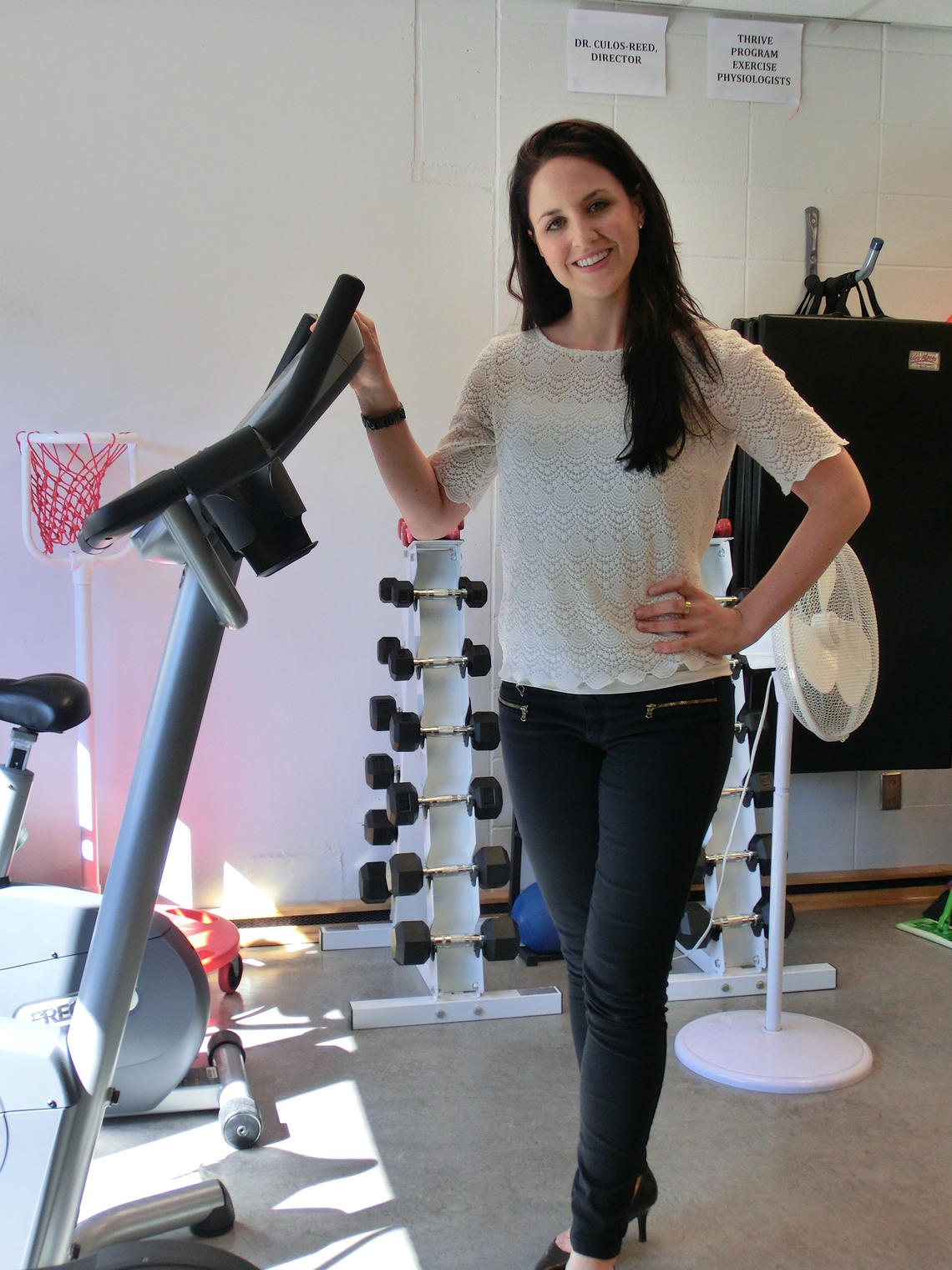Sept. 24, 2013
Vaniers: Lauren Capozzi followed her heart, straight to Health and Wellness Lab

Capozzi’s research focuses on finding the best exercise approach for patients recovering from cancer
It was a spring to remember for Lauren Capozzi, a member of Dr. Nicole Culos-Reed’s Health and Wellness Lab in the Faculty of Kinesiology. She was named a Killam Scholar, was accepted by the Faculty of Medicine’s Leader in Medicine combined PhD/MD program, won a U Make A Difference award for her outstanding contributions to the Thrive Centre — and now has been named a Vanier scholar.
“It’s been a wonderful spring and really, really, really rewarding,” says Capozzi. “I’ve worked for a long time, and it hasn’t all been easy. It’s funny … I took a step back and finally just worked really hard at what I feel passionate about.”
Capozzi’s passion is active living and improving the quality of life for cancer patients and survivors. She lost her father to cancer a few years ago and realized that while medicine might extend people’s lives, it didn’t help them to enjoy their time. “My dad used to say to me, ‘It’s the life in your years, not the years in your life,’ and you know, when you’re 15, that doesn’t make much sense, but later when I looked back and learned from that, I thought, ‘I need to use my knowledge as a kinesiologist and as an exercise physiologist to help people improve the life in their years.’”
This passion seems to motivate a lot of Capozzi’s life. She organizes the incredible team of (mostly Kinesiology) student volunteers who keep Culos-Reed’s Thrive Centre running. The centre is a facility that provides cancer patients with a comfortable and safe place to work out under the supervision of trained volunteers. She’s also very involved in the Kinesiology Graduate Students Association. The certified personal trainer also leads exercise programs for cancer survivors and patients while somehow maintaining her high academic standing and research.
Following her graduation from the University of Alberta, Capozzi applied to medical school and was rejected. Feeling at loose ends, she followed her heart and approached the Alberta Cancer Board to find out if they knew of anyone researching cancer and exercise interventions. Needless to say, she was thrilled to discover Culos-Reed’s research program: “I started working with her and just couldn’t believe that there was actually research being done in this area that I had felt passionate about before I even knew that it existed!” says Capozzi with enthusiasm.
Capozzi’s PhD research is focused on determining the best exercise approach for patients recovering from head and neck cancers. In particular, she looks to find out whether an exercise program should be started during the grueling treatment phase, or whether it would be beneficial to wait until treatment is finished. Head and neck cancer patients suffer tremendously from cancer-related muscle loss (cachexia), so the hope is to discover an intervention that will help them retain more muscle mass, enjoy a better quality of life and recover more quickly from the disease.
“When we started working with the head and neck group, a gentleman who had finished treatment called me and said, 'I can't even stand up.' He's a really active guy, but he had lost so much muscle. The muscle wasting usually happens in the peripheral muscles — the functional muscles in your legs and arms. He couldn't stand up from a seated position and he said, 'I can't get back to work' — which is typical, their return to work rate averages two years because people struggle with basic things like getting up the stairs at their house — much less getting back to work.”
Given all that she’s achieved, you couldn’t blame Lauren from resting on her laurels, at least a little bit, but it doesn’t sound like that’s in her plans. “I'm truly grateful, I really am,” says Capozzi, “but I think when success comes to you, that's the time when you should think, 'Okay, what's my next goal?' Soak it up a little bit, but think — where do I go from here?”
